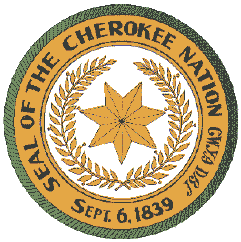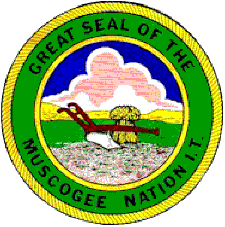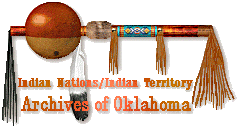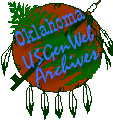More and more people
from all over the United States are researching to prove their ancestor
was an Indian. There has been an increase in interest in Indian ancestry
because emphasis IS placed on minority hiring in private industry and
other Government agencies, as well as in the BIA, and in services provided
by the Bureau of Indian Affairs. This is a complicated matter that
requires study and' research, and It Is not possible to set out all the
details In one article, but it is hoped this will help to start you in the
right direction
Whatever the
reasons, there are certain things people should know before they begin,
such as the fact that possession of Indian blood does not, of itself,
entitle an individual to rights or benefits provided by the Federal
Government. The payments made to person s of Indian descent represent
their shares of the assets of the tribe with which they are affiliated.
Consequently, to be eligible to share in the tribal assets, a person must
be a member of a tribe at the time its assets are being distributed.
Indian policy was
based on the General Allotment Act of 1887, which purpose was to break up
tribal land holdings and allot each tribal member land from the
reservation with land title and full U.S. Citizenship. This act did not
apply to the Five Civilized Tribes, the Osage, or the Sac and Fox,
however, a similar policy was forced upon them by the Dawes Commission The
Final Rolls of the Five Civilized Tribes (commonly called the Dawes rolls)
contain the names of more than 101, 000 people enrolled. A Commission t o
the Five Civilized Tribes was authorized to determine who was eligible for
tribal membership and thus entitled to an allotment of land. There is
generally a similar "FINAL ROLL" for most tribes, and tracing ancestry to
someone on. a "Final Roll"' Is usually the key to recognition by the
Bureau of Indian Affairs.
The Dawes Commission
Roll Book, the Final Rolls of the Five Civilized Tribes, which is used for
Certification of Degree of Indian Blood, was compiled mainly during the
years 1899-1906. Anyone who died before 1899 does not have a roll number
To be enrolled there were certain requirements to be met. Application had
to be made during the enrollment period, showing membership in the tribe
and actual residence within the area occupied by the tribe.
If your direct
ancestor was an original enrolled on the Dawes Commission Rolls and you
apply for Certificate of Degree of Indian Blood, based on that
relationship, you will be required to furnish certain proof such as birth
certificate, death certificate, or judicial determination of heirs showing
relationship to the nearest lineal enrolled ancestor. If you do not know
whether your ancestor was enrolled, or the tribe, you must identify your
ancestor and learn where they were living in, Indian Territory in 1900.
You can do this by looking on the 1900 Indian Territory census. Finding
them on the census will tell you which Indian Nation they were living in,
and if the person is Indian, identify the tribe. If you are looking for a
tribal member who was not of the Five Civilized Tribes, you should look on
the 1900 Oklahoma Territory for your ancestor, then check with Tribal
Headquarters or the tribal rolls in the Oklahoma State Historical Society.
The Dawes Commission Roll Books are also available at the Oklahoma State
Historical Society,
Some people may
never be able to prove Indian heritage. Indian law usually dictated that
"when any citizen shall remove with his effects out of the limits of the
Nation and become a citizen of any other government, all his rights and
privileges as a citizen of the Nation shall cease, provided nevertheless
that the National Council shall have power to re-admit any such person who
may at any time desire to return to the Nation, but no one is entitled as
an inherent right to re-admission to citizenship. If an applicant proves
that at one time he was a recognized citizen of the Nation and has
forfeited that citizenship, there is no law by which he can demand
admission. As a matter of course, the same laws and usages governed the
Dawes commission In their consideration of claims to citizenship
For the most part
Indian agents only kept track of persons who were recognized as tribal
members (either by the Federal government or the Tribal government).
People who remained behind when the bulk of their tribe was moved by the
Federal Government, or people who moved away from the tribe and in effect
ended their affiliation with It, will probably be lost as far as official
BIA records are concerned You will have to find these people using the
basic genealogical methods of putting the families In the proper place and
time period, and studying the history of the area; talking to family
members, asking for family Bible information, marriage records, birth
records and census records..
Even if you do not
prove your Indian Ancestry you will have made a significant contribution
to your family history, and that is a worthy effort.










